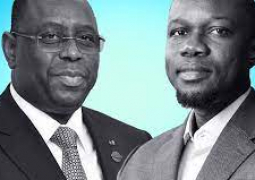
There is a looming succession crisis in the United Democratic Party and by way of sharing, I have set out a few theoretical insights below, and hope that their party will learn a thing or two from there.
Succession in politics is the ascension to power by a ruler, monarch, party leader or official upon the death, resignation, retirement or removal from office of another, usually in a clearly defined order. Perhaps one of the most important problems in any political order is the problem of succession, and the manner and period in which the succession and distribution of power appears.
In an autocratic or monarchical order it is common for son to succeed father and less is heard of divided authority in this kind of structured hierarchy. In that kind of regime the succession formula reflects perhaps an effort to increase central authority so that in a state of war for example, the order will be able to conduct an effective and more decisive military campaign. The problem of succession politics is perennial, and there is in practice no optimal solution anywhere, at least not when power is vested in one person.
The absence of a successor can cause uncertainty and plotting, as being manifest in UDP now, as heard in recent social media audios emerging from UDP ranks, and as was seen in PPP from the mid-end 1980s. And the presence of a clear succession plan in the party leadership can create another centre of power. Both situations can be dangerous and chaotic in a democratic party for the leader, and the party elites.
The problem of ensuring an orderly political succession has been a matter of concern for political thinkers for many centuries. The main objective of the party constitution is to structure power in such a way that an orderly succession can be established and maintained, but global experience shows that no political regime can avoid the challenges of leadership succession indefinitely.
As in Dankwart A Rustow (1964), the problem of political succession is implicit in the human condition. It is posed by man's morality and frailty. Political succession is not just an empirical phenomenon. Given the nature of politics, issues of political succession tend to be ever present in all political regimes. In Weller (2914), "the politics of succession is crucial to the development of political regimes generally".
While a smooth succession can increase the performance, legitimacy and stability of a party, a badly handled or failed one can put the party under serious pressure and even trigger its very end. This is true in particular in a leader, or power-centred authoritarian party. Similarly, bringing about succession to a long standing charismatic leader is almost always inherently problematic as observed in the "Concept of Charismatic Authority" Hoffman (2009). There is a raft of political literature and theoretical analysis on the subject of leadership succession in political parties.
Although the observations generally tend to suggest little differences in democratic and non democratic regimes. Some sign posts of democratic leadership succession or the rules designed to help bringing them can be found in some undemocratic regimes, where the leadership seeks to pick their own successor and heir apparent. And in some cases, powerful political dynasties can be found in even the most mature and advanced democracies.
Borrowing from ancient wisdom primogeniture can be a reasonable compromise where applicable can allow for an orderly transfer of power, while minimizing threats to the incumbent and to the stability of the party. In their classical essay, " The Politics of Succession", Andrew Kokkman at al, OUP (2022), the State- of-The Art Theory is referenced to contextualize this argument on the workings of the medieval monarchies, leaning on theoretical ideas which King Telipinus adopted in his programme of political reforms, citing political evils that had resulted in the past from aristocratic disunity. This predicted a precise Law of Succession (1722) which specified an exact order of precedence to be observed in the selection of a successor, which gave the monarch the right to choose his successor.
Author Kemo Conteh
Secretary, Research, Strategy and Development
For the National People’s Party (NPP)





